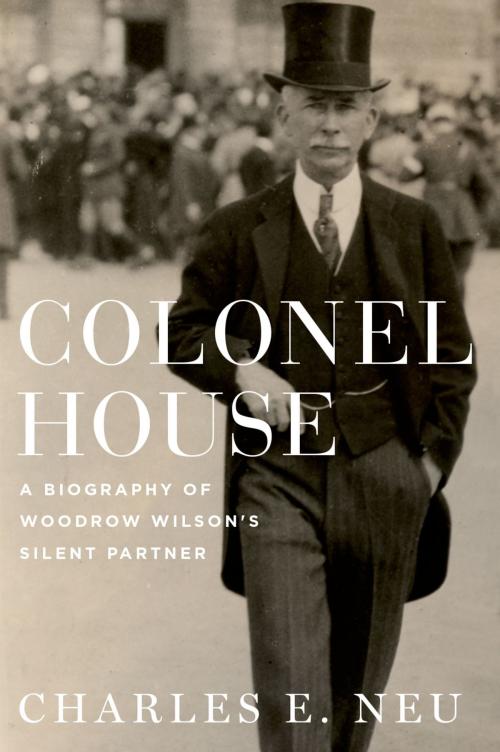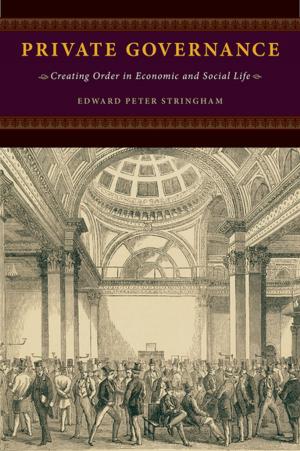Colonel House
A Biography of Woodrow Wilson's Silent Partner
Nonfiction, History, Modern, 20th Century, Americas, United States, Biography & Memoir, Political| Author: | Charles E. Neu | ISBN: | 9780199391448 |
| Publisher: | Oxford University Press | Publication: | November 28, 2014 |
| Imprint: | Oxford University Press | Language: | English |
| Author: | Charles E. Neu |
| ISBN: | 9780199391448 |
| Publisher: | Oxford University Press |
| Publication: | November 28, 2014 |
| Imprint: | Oxford University Press |
| Language: | English |
A man who lived his life mostly in the shadows, Edward M. House is little known or remembered today; yet he was one of the most influential figures of the Wilson presidency. Wilson's chief political advisor, House played a key role in international diplomacy, and had a significant hand in crafting the Fourteen Points at the Paris Peace Conference. Though the intimate friendship between the president and his advisor ultimately unraveled in the wake of these negotiations, House's role in the Wilson administration had a lasting impact on 20th century international politics. In this seminal biography, Charles E. Neu details the life of "Colonel" House, a Texas landowner who rose to become one of the century's greatest political operators. Ambitious and persuasive, House worked largely behind the scenes, developing ties of loyalty and using patronage to rally party workers behind his candidates. In 1911 he met Woodrow Wilson, and almost immediately the two formed what would become one of the most famous friendships in American political history. House became a high-level political intermediary in the Wilson administration, proving particularly adept at managing the intangible realm of human relations. After World War I erupted, House, realizing the complexity of the struggle and the dangers and opportunities it posed for the United States, began traveling to and from Europe as the president's personal representative. Eventually he helped Wilson recognize the need to devise a way to end the war that would place the United States at the center of a new world order. In this balanced account, Neu shows that while House was a resourceful and imaginative diplomat, his analysis of wartime politics was erratic. He relied too heavily on personal contacts, often exaggerating his accomplishments and missing the larger historical forces that shaped the policies of the warring powers. Ultimately, as the Paris Peace Conference unfolded, differences appeared between Wilson and his counselor. Their divergent views on the negotiations led to a bitter split, and after the president left France in June of 1919, he would never see House again. Despite this break, Neu refutes the idea that Wilson and House were antagonists. They shared the same beliefs and aspirations and were, Neu shows, part of an unusual partnership. As an organizer, tactician, and confidant, House helped to make possible Wilson's achievements, and this impressive biography restores the enigmatic counselor to his place at the center of that presidency.
A man who lived his life mostly in the shadows, Edward M. House is little known or remembered today; yet he was one of the most influential figures of the Wilson presidency. Wilson's chief political advisor, House played a key role in international diplomacy, and had a significant hand in crafting the Fourteen Points at the Paris Peace Conference. Though the intimate friendship between the president and his advisor ultimately unraveled in the wake of these negotiations, House's role in the Wilson administration had a lasting impact on 20th century international politics. In this seminal biography, Charles E. Neu details the life of "Colonel" House, a Texas landowner who rose to become one of the century's greatest political operators. Ambitious and persuasive, House worked largely behind the scenes, developing ties of loyalty and using patronage to rally party workers behind his candidates. In 1911 he met Woodrow Wilson, and almost immediately the two formed what would become one of the most famous friendships in American political history. House became a high-level political intermediary in the Wilson administration, proving particularly adept at managing the intangible realm of human relations. After World War I erupted, House, realizing the complexity of the struggle and the dangers and opportunities it posed for the United States, began traveling to and from Europe as the president's personal representative. Eventually he helped Wilson recognize the need to devise a way to end the war that would place the United States at the center of a new world order. In this balanced account, Neu shows that while House was a resourceful and imaginative diplomat, his analysis of wartime politics was erratic. He relied too heavily on personal contacts, often exaggerating his accomplishments and missing the larger historical forces that shaped the policies of the warring powers. Ultimately, as the Paris Peace Conference unfolded, differences appeared between Wilson and his counselor. Their divergent views on the negotiations led to a bitter split, and after the president left France in June of 1919, he would never see House again. Despite this break, Neu refutes the idea that Wilson and House were antagonists. They shared the same beliefs and aspirations and were, Neu shows, part of an unusual partnership. As an organizer, tactician, and confidant, House helped to make possible Wilson's achievements, and this impressive biography restores the enigmatic counselor to his place at the center of that presidency.















